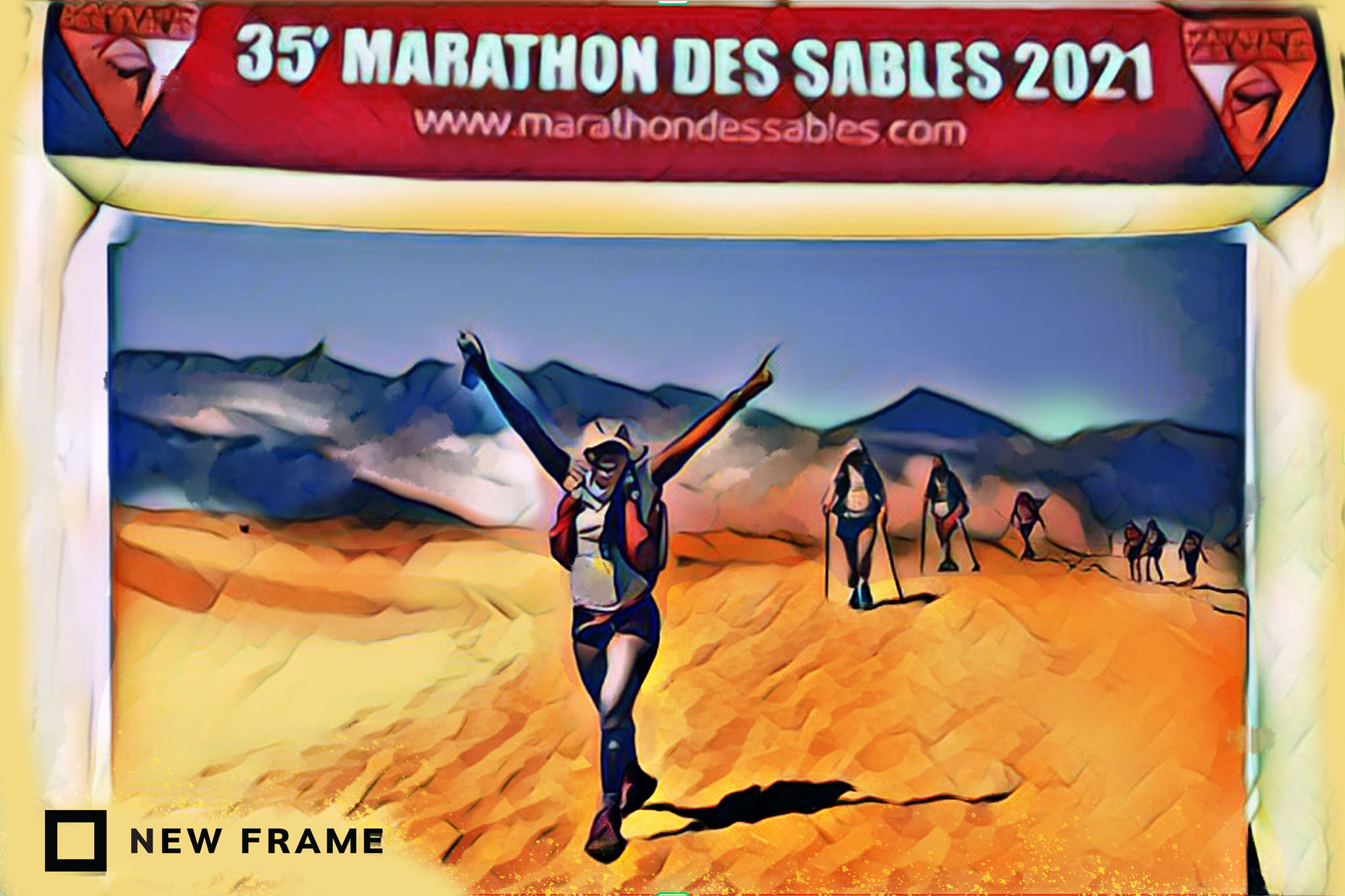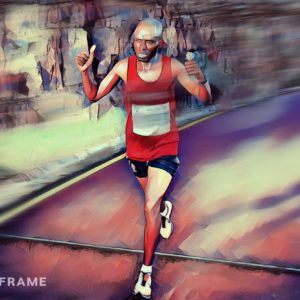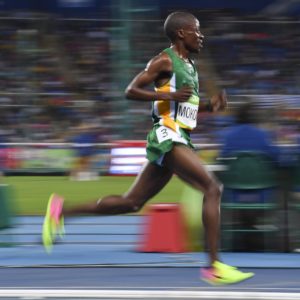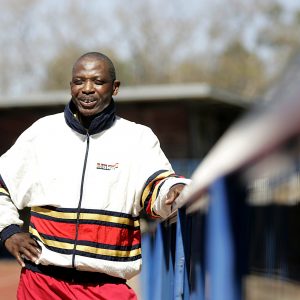Nontu Mgabhi is more than tough enough
The SA runner took the Marathon des Sables – the toughest foot race on Earth – in her stride, finishing in the top 2% despite hotter than usual conditions that saw half the pack drop out.
Author:
10 February 2022

The toughest foot race on Earth. These words would frighten even accomplished runners. But Nontuthuko Mgabhi is a seasoned runner of the where-angels-fear-to-tread variety, and so words like this pique her interest.
When Mgabhi came across them, she was looking for her next challenge after becoming the first African woman to complete the World Marathon Challenge. She did this two years ago, completing seven marathons on seven continents in seven days.
Mgabhi, 35, from Richards Bay, loves to push her body to the limit. But when she ran the World Marathon Challenge, she did so for a good cause: to raise funds for Khiphinkunzi Primary School in Mtubatuba, KwaZulu-Natal.
Related article:
“I started thinking about my next adventure back in January [2021], when the building of the first phase was almost completed,” she says.
Mgabhi raised close to R2 million, which was used to either build or help renovate five classrooms. This time, she wanted to raise funds to build toilets and an administration block. “The situation at Khiphinkunzi is still pretty dire, because the principal and the teachers share just one classroom as an office. You can imagine how bad that is, especially given the Covid-19 conditions that we are currently living in.”
And so she took on the six-day Marathon des Sables. Also known as the Sahara Marathon, it is a 251km ultramarathon in southern Morocco in the Sahara Desert. It’s longest stage is about 91km.
It is that tough
“I came across this race billed as the toughest foot race on Earth and I was like, damn, where do they get the right to call their race the toughest on Earth? I mean toughest is a very subjective matter. In any case, the conditions are never the same year in and year out, so why would they say it is the toughest?”
She researched the race and read articles that confirmed this billing of the Sahara Marathon. But rather than scare her off, it made her want to find out for herself.
“It appealed to me. The description of it was similar to what drew me to the World Marathon Challenge. For that one, I was initially, like, how can we run seven marathons on seven continents in seven successive days? With this one, it was more to discover if it is really the toughest on Earth.”
Related article:
Mgabhi ran the race, completed it and lived to tell the tale. “It is as tough as they make it out to be. But, toughest? I don’t really know, hey. This one that I ran was definitely the toughest race of them all because unlike the previous ones, we ran in October instead of April when it normally takes place. And conditions in October out in the Sahara are much tougher than they are in April because it is a much hotter month.”
The drop-out rate in the previous 43 editions was 5% or nothing, says Mgabhi. The rate for this edition was 50%. “We even had a death on the first day … So perhaps I should go and run it in April. Only then will I be able to say if it is the toughest foot race on Earth.”
Someone died? Surely that makes it the toughest race? “While this year presented itself as a monster, I don’t think people should fear it as a race that can kill you. I’d run it again in its normal time to see how it really is.”
Patience over position
Mgabhi says patience is how you finish almost a marathon daily. It is “very unique in that it is not about how fit you are, but really about management. I mean, we had Olympians who didn’t finish. The key is to acclimatise, and being someone who runs and hikes a lot, and having climbed Mount Kilimanjaro, I didn’t struggle with that. I knew first-hand what rushing too early would do.
“So the first three days were about getting to know the desert … I forgot all about the time, but focused on finishing … I was not looking for a position.” Nonetheless, Mgabhi finished 13th out of the 636 who started.
The runners carry their own supplies. “They only provided us with water, about 1.5 litres at every 10km or 15km, and you have to carry that water with you and make sure it lasts you until the next water point,” says Mgabhi. Conditions were extreme, though, with temperatures reaching 56°C, and the organisers provided more water from day two.
Related article:
“This race is about management,” she adds. “I managed my water intake. Every 10 minutes I was taking a sip.” Mgabhi also poured water over her head every 30 minutes to cool down, and ate an energy bar or dried fruit every hour. And “I ran only when the terrain allowed for it and where it did not, I walked”.
The race also required that she manage her ego, to focus not on finishing but “on how you felt at a particular time and what was the best decision to make at that time” and “running my own race”. Sharing tents with other runners made it difficult to keep her ego in check, as it was tempting to want to be the first to the tent.
All in the preparation
Mgabhi spent six months preparing for the Marathon des Sables, following a stringent training programme designed for her by her coach, renowned ultra distance runner Prodigal Khumalo. She started in March and did race-specific training for the last three months. She ran on the beach every weekend, for two hours on Friday, six on Saturday and eight on Sunday while carrying a loaded backpack.
“Sure, I trained on the beach sand. But it was not as dry as what I encountered during the race. The ideal would have been for me to have gone to train in Namibia. So yes, I was ready in terms of time on the legs and the mileage. But I was not really race-specific ready.”
Nothing could have prepared them for the death of a runner on the first day. “Of course it is hard to go on after hearing such news. But I was there for a reason … I knew that as long as I did not get carried away, I would be all right.”
Prior to Morocco, Mgabhi consulted Sandra Wukovich, a South African woman who had done the race before. “She said to me, ‘You think you will need a lot of food, but whatever you are planning to take I suggest you take half.’ And she was so right, because even the half I took was a lot … The day we were doing the longest distance I had to reduce my load. I gave the food to a guy on the path. A lot of poor Moroccans go in there to ask for food and we give them. So my bag was very light at 11kg.”
Related article:
Unlike most competitors, she took the advice not to use poles to help her balance. “There was a day when we had the mother of all sand dunes and we had to cross it using a rope. Most of the competitors struggled to navigate using that rope because of those poles.”
Incredibly, just two months after smashing the Marathon Des Sables, Mgabhi ran the Ultra Trail Cape Town. “We needed to raise the money for the school and while there have been some generous donors, we still need more and I did Cape Town Ultra also as part of the fundraising project.”
Anyone keen to help Mgabhi can contact her by email on nontu.mgabhi@icloud.com.




